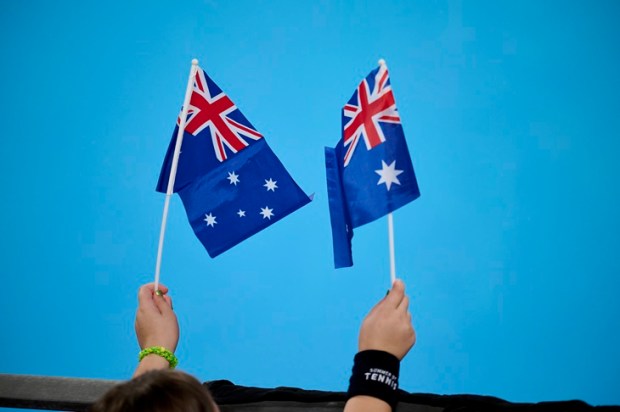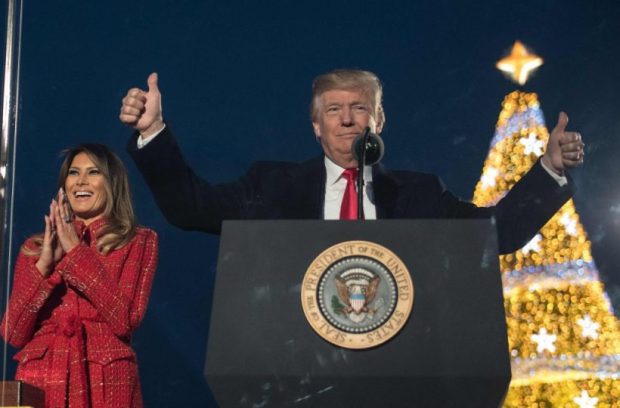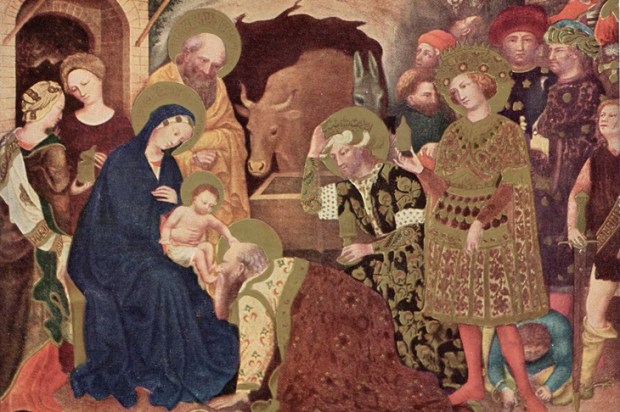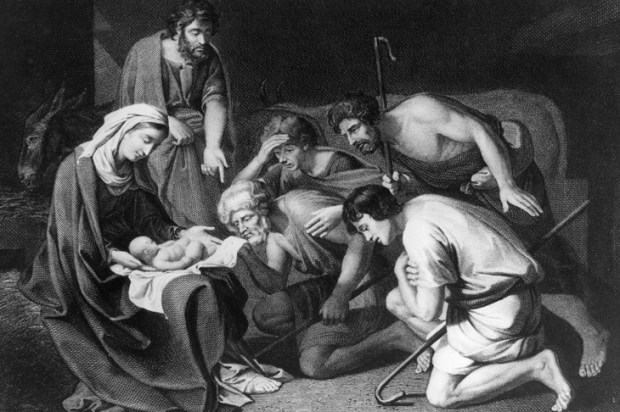The result of the weekend’s referendum was known within an hour or so of polls closing. Australians emphatically voted against constitutionally enshrining an Indigenous Voice to Parliament.
Nationally, just 39.3 per cent affirmed the proposition, while a whopping 60.7 per cent made known their disapproval. Every state rejected it, along with the Northern Territory, home to the highest proportion of Indigenous residents in the nation.
The result was as definitive as the opinion polls had suggested. Once postal votes are accounted for, the ‘No’ vote will likely swell some more.
The referendum debate subjected Australians to months of bickering and division. With some campaigners cynically framing the debate as a de facto empathy test or a vote on the value of Indigenous lives, the referendum took an especially heavy toll on many Aboriginal Australians.
However, as the dust settles on Saturday’s result, what are the positives all Australians can take away from our nation’s 45th referendum?
Indigenous Equality Reaffirmed
In 1967, over 90 per cent of Australians voted in favour of including Indigenous people in the census and empowering the federal government to legislate for Aboriginal people. That referendum took place in a decade that saw the full political equality of Aboriginal Australians affirmed, including their right to vote and stand for political office.
Almost 60 years later, Australians were effectively asked if Indigenous Australians should receive unequal political rights via a permanent race-based advisory body in Canberra. Their resounding rejection of the 2023 proposal was a conspicuous reaffirmation of the 1967 referendum.
Thus, for more than five decades, our nation’s body politic has maintained remarkable consistency in its belief in the fundamental equality of all Australians, regardless of race. Put another way, the majority of the nation believes Aboriginal and Torres Strait Islander Australians do not need to be pandered or condescended to for the simple reason that they are already our equals.
National Unity Fortified
While the referendum debate was deeply divisive, the eventual outcome was clear and resounding. A hefty majority of Australians agree that there are far more constructive ways to address Indigenous disadvantage than the one recently offered.
Note that a constitutionally-enshrined advisory body in Canberra was not the only thing rejected on Saturday. The Uluru Statement from the Heart – the political manifesto behind the Voice – imagined two Australian sovereignties in competition.
‘The invasion that started at Botany Bay is the origin of the fundamental grievance between the old and new Australians,’ the document argued. ‘Our sovereignty preexisted the Australian state and has survived it.’
Two competing Australias, divided along ethnic lines, perpetually battling for the upper hand in Canberra? It was a recipe for an ugly but permanent national division. Whether or not most voters were aware of the Uluru Statement’s more radical aims, they have repudiated it – and future generations will thank them.
Identity Politics Rejected
Over the last decade, we have seen a concerted effort from many quarters to reduce people to their physical attributes, and reward or hinder them accordingly.
Identity politics is a reductionistic way of viewing the world, and an anaemic way of viewing our fellow human travellers, who are made in God’s image as one-of-a-kind individuals.
Cultural Marxism has taken this a step further, using race to categorise people as ‘oppressed’ and ‘oppressor’. Western Marxists have been very successful at weaponising Indigenous people against Western institutions which – ironically – have been uniquely successful at protecting their dignity and equality in law.
It is a credit to voters and a blessing for Australia that such a strong majority have resisted this cynical ploy, choosing to view Indigenous Australians as individuals, not avatars of a political cause.
Elitism Rebuked
As so well stated by the Daily Declaration’s James Macpherson, the Voice referendum was a tale of two territories. The jurisdiction most representative of the national mood was the Northern Territory, whose vote total almost perfectly mirrored the nationwide result. The Northern Territory is home to the highest percentage of Indigenous Australians, with almost a third of the state’s population identifying as such.
Indeed, according to an analysis by Sky News Australia, the five electorates with the largest Indigenous populations – each of them far-flung rural seats away from Australia’s east coast – all voted ‘No’, and by an average of 71 per cent.
At the other end of the spectrum was the Australian Capital Territory, which was the only jurisdiction in the country to carry the ‘Yes’ vote, but whose population is not even 2 per cent Indigenous.
Canberra’s result was likewise reflective of a national pattern: Only 27 of Australia’s 151 electorates supported the constitutional amendment, every one of them clustered around the nation’s wealthiest cities, far away from where Indigenous disadvantage is most palpably felt. It was not a good look for a campaign parading itself as a grassroots movement and a ‘voice for the voiceless’.
If nothing else, the weekend’s result was a sharp rebuke for an elite class sorely out of touch with ordinary Australians but with its hands closest to the levers of power. The elite class might not like it, but a nation known for its egalitarianism has just reasserted that commitment in spectacular fashion.
Corporate Meddling Ignored
In recent years, Western democracy has been subverted by powerful corporations and other entities that now routinely put their finger on the scales of political contests that were designed to be decided by individual citizens alone.
It is part of a trend that cultural commentator Carl Trueman dubs ‘the abolition of the pre-political’ – or more simply, the politicisation of everything.
We saw this trend play out in the referendum debate as big businesses, universities, banks, unions, mining giants, the UN, sporting bodies and sponsored celebrities united to weigh in with all the funds and persuasive power they could muster.
To their credit, Australians managed to resist overwhelming peer pressure from the top end of town – and instead, voted according to their sacred conscience, as they should have.
Democracy on Display
Related to the previous point, Saturday’s vote was a confidence booster for Australians who have grown wary of political bias even in institutions that are explicitly tasked with political neutrality.
It is difficult to deny that the Australian Electoral Commission has injured its reputation. The ABC, likewise, provided extremely one-sided coverage of the Voice debate, as reported by the Daily Declaration.
While institutions like the AEC and the ABC are still in desperate need of reform, the fact that victory fell to the side they not-so-subtly disfavoured is a win for all Australians. At most, the ‘No’ vote’s success may count as proof there is no entrenched institutional bias. At the very least, it suggests the Australian electorate is mature enough – and the electoral process robust enough – to counteract those headwinds.
It now behooves the losing side to quit their week of silence pouting; be honest that it was their particular proposal and not Indigenous Australians themselves that suffered rejection at the ballot box; raise their flags back to full staff, and respect the democratic process.
State premiers and governments are also on notice: if they push ahead with state-based voices, they likely do so in defiance of the will of their constituents.
‘Misinformation’ Narrative Exposed
Every political battle represents a contest over truth. Inevitably, opposing sides will spin and bend the truth in their favour as they campaign for the hearts and minds of the voting public. What is electoral politics, if not this?
What sets the 2023 referendum apart is not its contest over truth, but the insistence of the losing side and its media allies that this contest represented a unique departure from norms, and deserves its scary new label: ‘misinformation’.
Lamenting his team’s loss, Yes23 campaign chief Dean Parkin blamed the outcome on the ‘single largest misinformation campaign this country has ever seen’. The Guardian likewise dubbed Saturday’s result ‘the dark victory of misinformation’, while the ABC whined that ‘the Voice campaign was infected with disinformation’.
Even if some Australians were taken in by outlandish claims, they were hardly the reason the ‘Yes’ camp squandered its starting position of almost 70 per cent national support.
More concerning is that pro-Voice media activists have smeared even the genuine concerns of Australians as ‘misinformation’.
On the Guardian’s ‘seven biggest pieces of misinformation’ list, for instance, is that ‘the voice will divide the nation’ and ‘the voice is legally risky’. The Voice did divide the nation and, if adopted, would undoubtedly have divided it further. Likewise, any government advisory body invested with significant powers but poorly defined parameters is, by definition, legally risky.
So ‘misinformation’ is any fact inconvenient to the powers that be?
Indeed, if ‘misinformation’ is the new game to play every time we go to the ballot box, both sides can play it.
In that vein, some of the biggest furphies came from the ‘Yes’ camp. As admitted by its authors, the Uluru Statement from the Heart was more than one page, despite every protestation of the Prime Minister. The architects of the Voice did hope it would pave the path to Treaty. Some of its key campaigners were Communist sympathisers who did not view the Voice as a ‘modest proposal’. And to set straight the biggest fib of all: it is simply not true that Indigenous Australians have ‘No’ voice apart from ‘The Voice’.
Each of these ‘Yes’ campaign claims were not isolated to the fringes of social media: they were central to its message. And according to the rules of this new game, they were straight-up disinformation.
The majority of Australians evidently saw through that game, proving they are not so easily manipulated – and that is something worth rejoicing over.
Woke Gaslighting Dismissed
Another form of manipulation shrugged off by Australia’s voting public was the gaslighting of Woke activists.
Former TV great Ray Martin called ‘No’ voters ‘dinosaurs’ and ‘d*ckheads’. Voice co-designer Marcia Langton claimed the ‘No’ case relied on ‘base racism’ or ‘just sheer stupidity’.
Each of these ugly remarks were a sad but accurate reflection of how ‘No’ voters were viewed by the establishment.
Perhaps the biggest obstacle ‘No’ voters overcame on the weekend was not cultural fashion, the opinions of elites, media bias, or corporate largesse – but Woke gaslighting.
Over 60 per cent of Australians were effectively told they were racists for voting ‘No’. They scorned the hollow accusation and voted ‘No’ anyway. It was a historic rejection of Wokeism – one that will doubtless pay dividends in future national debates.
New Leadership Raised Up
All political campaigns provide opportunities for new leaders to step up, and this was true on both sides of the referendum debate.
The most stand-out leader of either side was surely Northern Territory Senator Jacinta Nampijinpa Price, whose most impressive display was her National Press Club address last month.
It was not just her words but the facts of her life that made Senator Price’s ‘No’ case so compelling. Were the Voice enacted, her family would have been split down the middle, with constitutional favouritism elevating Price’s Warlpiri mother and children above her Caucasian father and husband.
Senator Price’s mixed heritage exposed the weak logic of the ‘Yes’ campaign at every turn. Asked if ‘generational trauma’ was to blame for Indigenous disadvantage today, Price quipped that she should be ‘doubly suffering’ since her Celtic ancestors came to Australia as chained-up convicts. Asked if she supports blood tests to prove Indigenous heritage and stop fake claimers, she changed the subject, arguing, ‘If we actually chose to serve Australians on the basis of need and not race, those opportunists would disappear quick smart.’
So impressive was her performance throughout the campaign that large swathes of the ‘No’ campaign have issued calls for Senator Price to become Australia’s next Prime Minister, as reported by the Daily Mail.
While that prospect involves a number of technical hurdles, Price has not dismissed the possibility.
In theory at least, a Prime Minister Jacinta Nampijinpa Price would be a unifying figure for the nation – pleasing the Left as Australia’s first female Indigenous Prime Minister, and the right with her brand of courageous conservatism, irrespective of her sex or race.
Of course, whether or not events play out in such a way remains to be seen.
A Stronger Cure Demanded
Sore ‘Yes’ campaigners might want to spin the Voice’s failure as a lack of compassion for Indigenous Australians, but the truth is actually much brighter.
In a comprehensive ANU poll, 86 per cent of Australians said that Indigenous social disadvantage was important to them, 81 per cent valued Indigenous self-determination, and 78 per cent supported Constitutional recognition.
Clearly, Saturday’s result was ‘No’ commentary on whether Australians care about Indigenous issues, but rather, a rejection of Labor’s ill-defined Voice as the best way to address those issues. Viewed without a cynical bias, this weekend’s ‘No’ makes way for a better ‘Yes’.
Were the referendum successful, too many Australians might have assumed their ‘Yes’ vote largely addressed Indigenous rights and absolved them of further responsibilities. On the contrary, months of campaigning has exposed all Australians to the serious challenges faced in remote Indigenous communities, and the ‘No’ result underscores that a stronger cure is required than just a visit to the ballot box.
Some Australians – both ‘Yes’ and ‘No’ voters – will now shrug their shoulders and move on. However, many are awake to Indigenous issues like never before.
There is an appetite for an audit of the billions of dollars being spent on programs for Indigenous Australians that keep failing to close the gap. Frontbenchers are calling on companies that gave to the ‘Yes’ campaign to give the same amount to organisations supporting victims of domestic violence. The Senate was even considering a Royal Commission into the sexual abuse of Aboriginal children. Deeper questions are being asked about endemic issues in remote communities that welfare alone can’t solve – issues like joblessness, suicide, and social breakdown.
These are uncomfortable topics, but they are now the concern of more Australians than ever – and with ‘No’ quick fix that permits the country to just continue on its merry way.
This is another reason all Australians can rejoice at the Voice referendum result.
Originally published at the Daily Declaration.

























